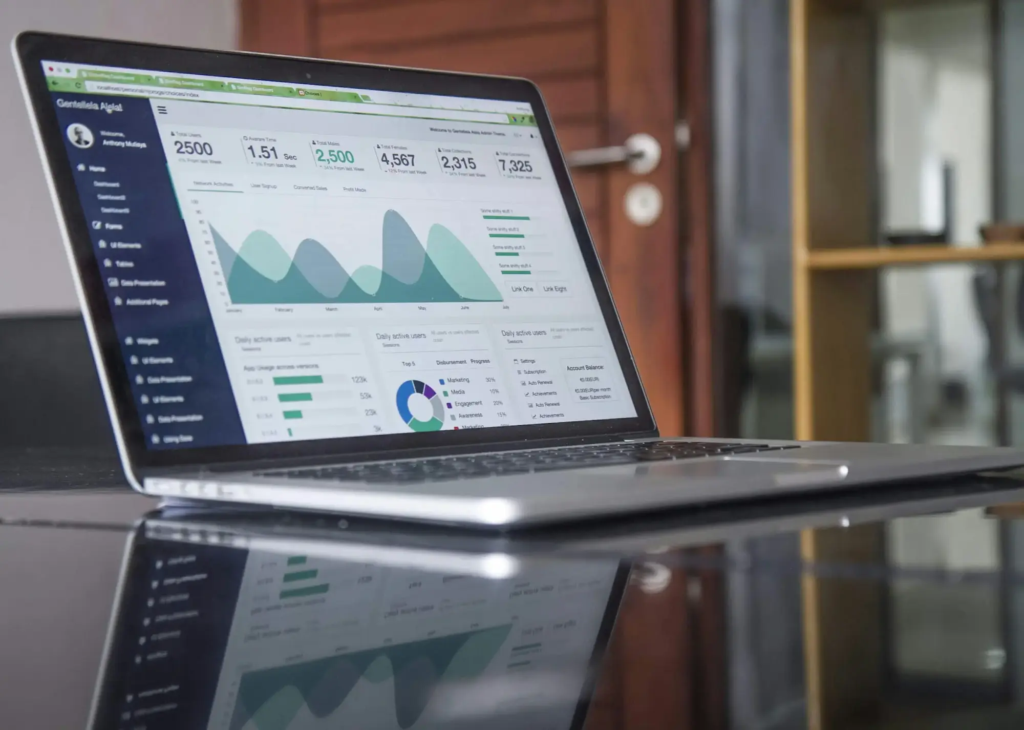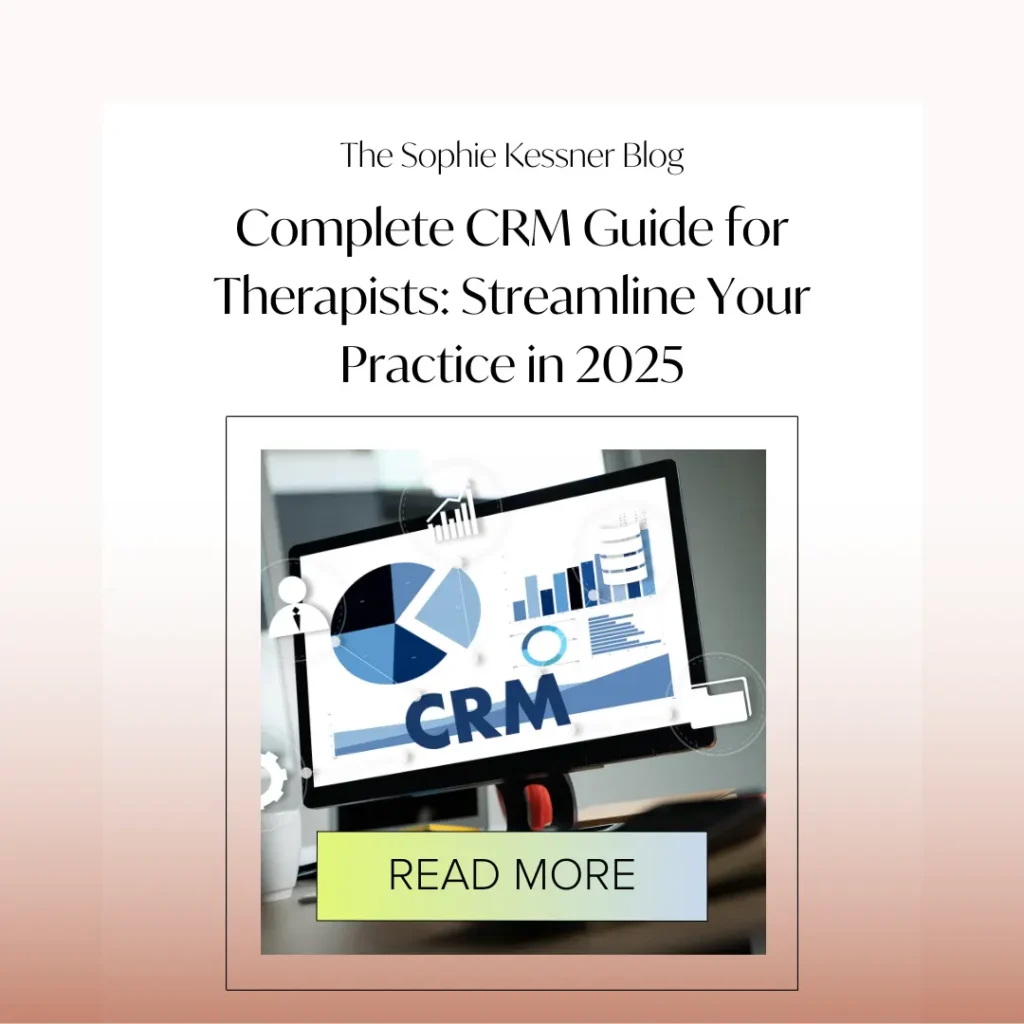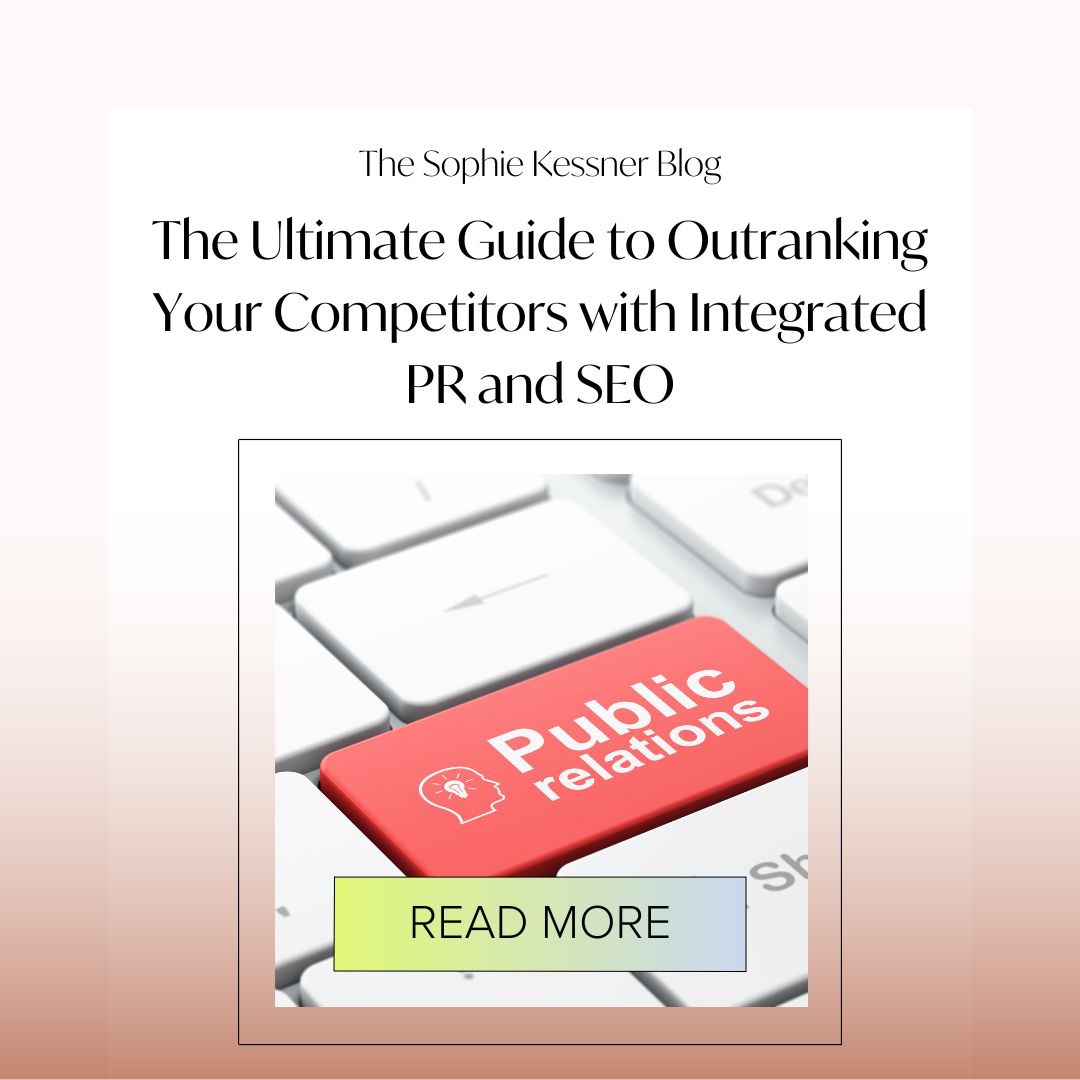Are you spending more time on paperwork and phone calls than on actual client care? If so, you’re not alone. Many therapists face an increasing administrative burden that takes away from what matters most—helping clients. That’s where a CRM for therapists comes in. A customer relationship management system designed for mental health professionals can simplify client data management, automate appointment reminders, and keep your therapy practice running smoothly. This is a tool designed specifically for therapists to automate and streamline practice management tasks, making daily operations more efficient.
With the right CRM platform, you get instant access to client information, streamline repetitive tasks, and improve client communication—all in just a few clicks. A good CRM software boosts operational efficiency, helps build stronger client relationships, and frees up time to focus on what you do best: providing quality client care. It also helps therapists foster better relationships with their clients by supporting more meaningful and effective interactions.
Understanding CRM Needs in Modern Therapy Practice
Running a therapy practice today means juggling more than just client sessions. Managing client data, handling appointment reminders, and keeping up with paperwork can quickly pile up. Many mental health professionals find themselves buried under this administrative burden, which takes time away from client care. Traditional methods like paper files or basic spreadsheets just don’t cut it anymore.
Research shows that mental health disorders are a significant global concern, contributing to over 14% of deaths worldwide each year. This underscores the critical role mental health professionals play in society and the importance of efficient client data management and care coordination.
Clients expect faster responses and smoother communication in this digital age. They want easy scheduling, quick follow-ups, and clear communication. That’s why a customer relationship management (CRM) system designed specifically for therapists is a game-changer. Unlike generic business management tools, a CRM platform built for the mental health sector understands the unique needs of therapy practices.
It helps build and manage strong customer relationships by streamlining communication, organizing client data, and keeping all client information in one secure place. It also automates repetitive tasks like appointment reminders, and highlights the importance of managing client information efficiently to reduce manual administrative tasks and improve client engagement. Plus, it supports HIPAA compliance, so your client data stays safe. For private practices and larger mental health organizations alike, a good CRM system boosts operational efficiency and keeps your focus where it belongs—on providing great client care.
Core Benefits of CRM Implementation for Therapists
A CRM for therapists isn’t just another tool—it can transform how your therapy practice runs every day. Here’s how:
- Centralized Client Management: Instead of flipping through paper files or juggling multiple apps, a CRM platform gives you instant access to all client information in one place. This means you can quickly review client notes, appointment history, and follow ups without wasting time.
- Automate Appointment Reminders: Missed appointments cost time and money. CRM software can automate appointment reminders via email or text, reducing no-shows and keeping your schedule full with just a few clicks.
- Cut Down on Repetitive Tasks: From intake forms to billing follow-ups, many administrative tasks can be automated. This frees you and your staff to focus more on client care instead of paperwork.
- Improve Client Communication: Integrated communication tools help you stay connected with clients through secure messaging, email marketing, or even social media management. These tools also enhance patient engagement by improving care coordination and the overall client experience. This keeps clients engaged and feeling cared for between sessions.
- Data Driven Insights: A good CRM offers comprehensive reporting capabilities. You can track client retention, identify trends, and make data driven decisions to grow your therapy business.
- Boost Operational Efficiency: With the ongoing shortage of mental health providers—where nearly 60% of psychologists report having no openings for new patients—streamlining business operations is more critical than ever. A CRM reduces the administrative burden on practice owners and staff, making day-to-day work smoother and less stressful.
All these benefits add up to better client relationships and a healthier, more efficient therapy practice.
Essential CRM Features for Therapy Practices
Choosing the right CRM for your therapy practice means knowing which features really matter. Here are the key features that make a CRM a comprehensive solution for mental health professionals:
- HIPAA Compliance: Protecting client data is non-negotiable. A CRM designed for therapists must have strong security measures and meet HIPAA compliance standards to keep client information safe.
- Integrated Scheduling and Calendar Apps: The right CRM helps therapists manage appointments efficiently, including session bookings, rescheduling, and reminders, by syncing with calendar apps. You can schedule sessions, send appointment reminders, and reduce no-shows—all from one user friendly platform.
- Automated Intake Process: Intake forms that clients can fill out online save time and reduce errors. The CRM should automatically update client data and store it securely.
- Insurance Verification Tools: Checking insurance eligibility can be a headache. The best CRM software includes tools that automate insurance verification, cutting down on administrative tasks.
- Referral and Lead Management: Track where your potential clients come from and manage referral sources easily. This helps you grow your therapy practice by focusing marketing efforts on what works.
- Comprehensive Reporting Capabilities: A CRM with strong reporting features helps you identify trends, track client retention, and monitor business operations. These data driven insights support smarter decisions.
- Marketing Automation and Social Media Management: Some CRMs offer email marketing and social media tools to keep your clients engaged and attract new ones through inbound marketing.
- Client Communication Tools: Secure messaging and follow ups keep client relationships strong and improve client satisfaction.
An all in one CRM platform with these features can reduce your administrative burden and help you focus on what matters most—providing excellent client care.
Organizing Client Notes Efficiently with CRM
Keeping client notes organized is essential for any successful therapy practice. With a customer relationship management (CRM) system, mental health professionals can manage client data, appointment history, and communication records all in one secure place. Instead of sifting through paper files or scattered digital documents, a CRM system allows you to access and update client notes quickly and accurately, reducing the risk of errors and saving valuable time.
By centralizing client information, therapists can easily track progress, spot important patterns, and make informed decisions about treatment. This streamlined approach not only lightens the administrative burden but also helps maintain HIPAA compliance by ensuring sensitive client data is stored securely and confidentially. With less time spent on administrative tasks, therapists can devote more attention to client care, leading to higher client satisfaction and better outcomes. Ultimately, using a customer relationship management CRM to organize client notes empowers therapy practices to deliver more effective, personalized care while keeping operations efficient and compliant.
CRM Implementation Strategy for Different Practice Types

Every therapy practice has its own needs, so choosing the right CRM depends on your setup. For solo practitioners, a simple, user friendly platform that handles client management, appointment scheduling, and automated appointment reminders is often enough. Starting with an all in one CRM that’s affordable and easy to learn can make the transition smooth without a big upfront cost.
An integrated CRM platform can significantly enhance therapy flow by streamlining marketing automation, communication, and practice management, helping therapy practices boost client engagement and operational efficiency.
CRM Needs and Challenges for Group Therapy Practices
Group practices face different challenges. They need a CRM that offers strong security and access controls, so each therapist can only see the client information relevant to them. Collaboration features are important to keep the team coordinated. It’s also helpful if the CRM integrates well with other software you already use, avoiding duplicate work and confusion.
Tailored CRM Features for Specialty Mental Health Practices
Specialty mental health practices, such as those focusing on trauma or child therapy, benefit from CRMs that support customized workflows and outcome tracking. Telehealth integration is another key feature if you offer remote sessions. These tools help you deliver personalized client care while keeping business operations running smoothly.
Scalable CRM Solutions for Multi-Location Therapy Practices
For multi-location practices, scalability is critical. You’ll want a CRM system that unifies client data across all sites and provides comprehensive reporting capabilities. This allows practice owners to monitor performance and identify trends no matter where clients receive care.
Effective Planning and Training for Successful CRM Adoption
No matter the size or type of your practice, planning your CRM rollout carefully is essential. Proper staff training and clear communication help reduce resistance and ensure a smooth transition. With the right CRM tool and strategy, you’ll lighten the administrative burden and strengthen client relationships throughout your practice.
Overcoming Common CRM Adoption Challenges

Switching to a new CRM system can feel overwhelming, especially when you’re already juggling client care and business operations. But many therapists face the same hurdles—and there are simple ways to tackle them.
One common challenge is staff resistance. Change can be uncomfortable, but involving your team early and showing how the CRM will make their work easier helps build buy-in. Offering clear, step-by-step training reduces frustration and speeds up adoption.
Data migration is another worry. Moving client data safely while keeping everything HIPAA compliant is critical. Choose a CRM that offers secure import tools and support. Don’t rush this step—double-check that all client information transfers correctly before going live.
Integrating your new CRM with other software you already use, like calendar apps or billing systems, can also be tricky. Look for platforms with strong integration options to avoid juggling multiple systems.
Finally, some therapists worry that automating repetitive tasks might make client interactions feel less personal. The key is to use automation to handle routine work—like appointment reminders or intake forms—so you can spend more quality time with clients.
Staying up to date with CRM updates and best practices in the mental health sector ensures your system keeps working smoothly. With the right approach, these challenges become manageable steps toward a more efficient, client-focused therapy practice.
Security and Compliance in CRM for Therapy Practices
For therapy practices, safeguarding client data is non-negotiable. A CRM system designed for mental health professionals must prioritize security and compliance to protect sensitive information and uphold client trust. A good CRM will offer robust security features such as data encryption, customizable access controls, and detailed audit trails, ensuring that only authorized users can view or modify client records.
Compliance with regulations like HIPAA is essential in the mental health sector, and the right CRM system will help your practice meet these standards automatically. Many leading CRMs also support compliance with other privacy laws, such as GDPR and CCPA, providing peace of mind for both therapists and clients. By choosing a CRM that takes security and compliance seriously, therapy practices can minimize the risk of data breaches, demonstrate their commitment to client privacy, and strengthen their reputation within the mental health community. Protecting client data isn’t just about following the rules—it’s about building lasting trust with every client you serve.
Integrating CRM with Other Software in Your Practice
Integrating your CRM with other software tools is a smart way to streamline business operations and enhance client care in your therapy practice. By connecting your CRM system with calendar apps, you can automate appointment scheduling and reminders, making it easier to manage your day and reduce no-shows. Linking your CRM to email marketing platforms allows you to nurture client relationships, send targeted updates, and keep your services top of mind for both current and potential clients.
Telehealth integration is another powerful feature, enabling secure video sessions and remote therapy directly from your CRM. This unified approach means all client interactions, notes, and appointment history are accessible in one place, reducing administrative burden and minimizing errors. With integrated systems, therapy practices can gain a comprehensive view of client data, identify trends, and make data driven decisions to improve marketing efforts and client retention. Ultimately, integrating your CRM with other software helps you deliver seamless, high-quality client care while optimizing your business operations for growth and efficiency.
Measuring CRM Success in Therapy Practices

Knowing if your CRM is working well means tracking the right numbers. Start by looking at client retention rates. Are more clients coming back regularly? A rise here usually means your client communication and engagement are improving.
Measuring Time Savings and Appointment Efficiency with CRM
Next, pay attention to how much time you and your staff save on administrative tasks. If your CRM is doing its job, you should spend less time on paperwork and phone calls, and more time on client care. Tracking appointment history and no-show rates can also show how well automated appointment reminders are working.
Tracking Client Satisfaction and Leveraging Data-Driven Insights
Don’t forget client satisfaction. Simple surveys or feedback forms can help you see if clients feel better supported and more connected to your practice.
Use the CRM’s comprehensive reporting capabilities to pull all this data together. These reports give you data driven insights, helping you identify trends and make smarter business decisions.
Benchmarking Your Practice Performance Against Industry Standards
Finally, compare your numbers with benchmarks from other mental health practices. This helps you understand where your therapy practice stands and what areas need improvement.
By measuring these key indicators, practice owners can see the real impact of their CRM tool on both client relationships and business operations.
Advanced CRM Strategies for Practice Growth

Once your CRM is up and running smoothly, it can do much more than just manage client information and appointments. Advanced CRM features help you grow your therapy practice by working smarter, not harder.
Automating Marketing and Client Engagement with CRM Platforms
Marketing automation is a powerful tool built into many CRM platforms. It lets you create email marketing campaigns and social media management plans that run automatically. This keeps your therapy practice visible to potential clients without extra effort. Inbound marketing tools can help attract new clients by sharing helpful content and staying connected.
Leveraging Data-Driven Insights to Optimize Client Care and Marketing
Data driven insights from your CRM can reveal important trends. For example, you might notice certain types of clients respond better to specific therapies or that some referral sources bring in more clients. Using this information lets you tailor your marketing efforts and client care to what works best.
Enhancing Client Experience Through Telehealth and CRM Integration
Integrating telehealth platforms with your CRM is another way to expand your reach and improve client experience. It keeps all client interactions, notes, and appointment history in one place, making follow ups easier.
Using Predictive Analytics to Proactively Support Clients and Optimize Operations
Predictive analytics, available in some CRM systems, can help identify clients who might need extra attention or spot bottlenecks in your business operations before they become problems.
Building Referral Networks and Driving Practice Growth with CRM
Finally, use your CRM to manage referral sources and build stronger relationships with other professionals. This helps you grow your network and bring in more clients.
With these advanced strategies, your CRM becomes a key driver for therapy practice growth and better client care.
Choosing the Right CRM Platform for Your Therapy Practice
Picking the best CRM software for your therapy practice means looking beyond just features. Security and HIPAA compliance should be at the top of your list. You want a CRM platform that keeps client data safe and meets all privacy regulations.
Integration is another must-have. Your CRM should work well with calendar apps, billing software, and telehealth tools you already use. This avoids extra work and keeps everything connected.
User-Friendly Design and Scalability: Key Factors When Choosing a CRM
A user-friendly platform makes a big difference. If your CRM is easy to navigate, you and your staff will spend less time learning and more time helping clients. Good customer support and training resources are also important to keep things running smoothly.
Think about scalability too. As your practice grows, your CRM should grow with you. Check pricing models carefully—some charge per user, which can add up quickly for group practices.
Considering Total Cost of Ownership: Setup, Fees, and Long-Term Value
Finally, consider the total cost of ownership. Look at setup fees, monthly costs, and any extra charges for add-ons or support. Choosing the right CRM designed specifically for mental health professionals and private practices means you get a comprehensive solution that fits your needs today and tomorrow.
If you’re looking to attract more clients and improve your online presence, our DIY SEO Course at Sass and SEO can help you get started. It’s designed to guide busy therapists through simple steps to boost their website’s visibility without the hassle. We also specialize in SEO for therapists, offering personalized strategies to help you stand out online and attract even more clients. Whether you prefer a hands-on approach or tailored support, Sass and SEO is here to help you grow your practice.
Frequently Asked Questions (FAQs)
1. What is a CRM for therapists, and why do I need one?
A CRM for therapists is a customer relationship management system designed to help mental health professionals manage client data, appointments, and communication. It reduces administrative tasks and improves client engagement, making your therapy practice more efficient.
2. How does a CRM improve client retention in a therapy practice?
By automating appointment reminders, follow-ups, and client communication, a CRM keeps clients engaged and less likely to miss sessions. It also helps you build better client relationships through personalized care and timely interactions.
3. Is HIPAA compliance important in choosing CRM software?
Absolutely. Since therapy practices handle sensitive client information, a CRM must meet HIPAA compliance standards to protect client data and ensure privacy.
4. Can a CRM integrate with other tools I already use?
Most good CRM platforms offer integration with calendar apps, billing software, and telehealth tools. This helps streamline your business operations and keeps all client information in one place.
5. How do I measure if my CRM is helping my therapy practice?
Look at key metrics like client retention, reduced no-shows, time saved on administrative tasks, and client satisfaction. Comprehensive reporting features in your CRM can provide these data driven insights to track success.






